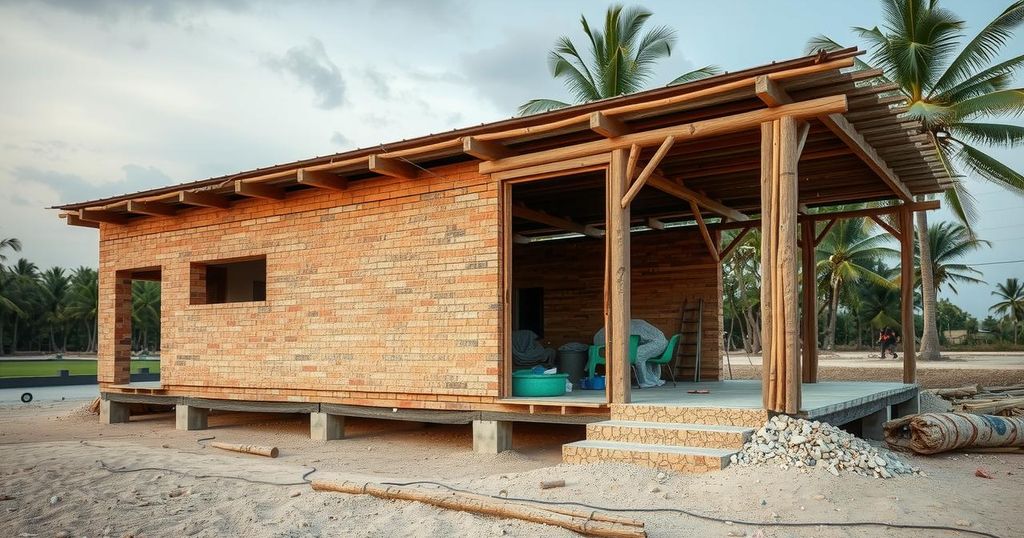Mozambique has begun constructing durable shelters for Cyclone Chido victims following the cyclone’s deadly impact, which left at least 70 dead and 600 injured. Minister Silvino Moreno emphasized the need for resilient materials and construction training to prevent future destruction. The cyclone caused extensive damage across multiple regions, overwhelming community infrastructure and worsening existing health crises.
Mozambique has initiated the construction of housing for those impacted by Cyclone Chido, which devastated three northern regions of the country last Sunday. The cyclone resulted in the unfortunate deaths of at least 70 individuals and left approximately 600 injured, along with significant destruction throughout the affected areas. Trade and Industry Minister Silvino Moreno, during his visit to these regions, stated that the government is striving to provide immediate assistance and that international partners are aiding these efforts.
Minister Moreno emphasized the importance of building shelters using resilient materials to prevent future destruction, as many homes in affected areas were constructed from mud and reeds, which were utterly inadequate against the cyclone’s force. He also highlighted the necessity for improved construction training for the local population. Prior to reaching Mozambique, Cyclone Chido had already wreaked havoc on Mayotte, a group of French islands, resulting in fatalities and damage to critical infrastructure, particularly affecting vulnerable communities such as asylum seekers and refugees.
The cyclone’s aftermath also impacted southern Malawi, where strong winds and heavy rain led to additional destruction. Mozambique’s National Meteorology Institute has warned that more storms are expected over the next three months and has urged better preparedness among communities. According to UNICEF, over 174,000 individuals have been affected by this disaster, with assessments likely to reveal even higher numbers in the coming weeks.
Significantly, thousands of classrooms and 20 health facilities sustained damage, further complicating recovery efforts. Michael Chimedza, UNICEF’s field office head in Zambezia province, stated that they have requisitioned supplies to assist 50,000 individuals and have allocated funds for local response training. Cyclone Chido also left around 25,000 families without electricity and damaged vital infrastructures, including roads and water supply systems. The region, already grappling with a cholera outbreak, faces heightened risks of worsening conditions, as reported by aid agencies.
Cyclone Chido hit Mozambique’s northern provinces, leading to tragic casualties and extensive devastation. The affected areas, predominantly housing structures made from mud and reeds, were ill-equipped to withstand such severe conditions. The government is mobilizing resources to support recovery, highlighting a critical need for resilient construction practices and community training. Additionally, the cyclone exacerbated pre-existing humanitarian crises in the region, such as cholera outbreaks and vulnerabilities among asylum seekers and refugees.
In summary, Mozambique is actively responding to the devastation caused by Cyclone Chido by building resilient shelters for the affected victims and seeking international aid. The cyclone’s impact has highlighted significant needs for improved construction practices and community preparedness. As the area continues to deal with reconstruction amidst looming health crises, the government’s commitment to better housing and local training remains essential for improving resilience against future storms.
Original Source: www.voanews.com






